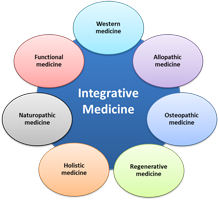 We at RN Patient Advocates recognize the value of Integrative Medicine as do millions of people who regularly seek to supplement their traditional western medicine regimen with other approaches, other therapies. There is quite a bit of confusion, though, about what Integrative Medicine really is. So, here are some definitions to help you:
We at RN Patient Advocates recognize the value of Integrative Medicine as do millions of people who regularly seek to supplement their traditional western medicine regimen with other approaches, other therapies. There is quite a bit of confusion, though, about what Integrative Medicine really is. So, here are some definitions to help you:
- Allopathy: traditional western medicine. Allopathy really shines with acute medical situations. If you are acutely ill, have a heart attack or a stroke, end up in a car accident or other mishap, you would be very wise to seek help from an allopathic physician. For degenerative and chronic illness, however, allopathy relies greatly upon symptom control. This is one of the greatest differences between Allopathy and Integrative Medicine: for these chronic illnesses, the Integrative Medicine model more actively seeks to discover the biochemical roots of the disease and correct them. Illness does not happen in a vacuum; there is always a reason rooted in our bodies genetics and chemistry. Integrative Medicine also promotes and delivers much more preventive care than allopathy at present.
- Integrative Medicine: a combination of the best and most appropriate therapies for you from the worlds of both traditional western medicine (Allopathy), Functional Medicine and Alternative Medicine. Sometimes Integrative Medicine is called Complementary Medicine in that it works alongside Allopathy, each bringing valuable therapies to you. Dr. Andrew Weil pioneered the introduction of Integrative Medicine to most Americans.
Integrative Medicine therapies are loosely based on the following principles:- The body has the ability to heal itself with the proper therapies.
- Healing practices are individualized; every body is unique.
- People are ultimately responsible for their own health and healing and should advocate for themselves – either directly or with assistance.
- Health and healing are related to a harmony of mind, body and spirit.
 |
Integrative Medicine is like a house with many rooms. Some of those “rooms” are as follows: |
| Osteopathic Medicine: Osteopathy was founded in the late 1800’s by Dr. Andrew Taylor. Osteopathic physicians train with the same medical school preparation and must pass the same medical exams as MDs. However, osteopathic physicians (DO’s) place additional emphasis on the musculoskeletal system, hence the name—osteo refers to bone and path refers to disease. Osteopaths also believe strongly in the healing power of the body and do their best to facilitate that strength. During this century, the disciplines of osteopathy and allopathic medicine have been converging. For more information, please visit www.osteopathic.org. | |
Alternative Medicine, including:
|
|
| Holistic Medicine: Holistic medicine (as defined by the Canadian Holistic Medical Association) is a system of healthcare which fosters a cooperative relationship among all those involved, leading towards optimal attainment of the physical, mental emotional, social and spiritual aspects of health. It emphasizes the need to look at the whole person, including analysis of physical, nutritional, environmental, emotional, social, spiritual and lifestyle values. Physicians practicing this are MDs, DOs as well as NDs. It seeks to recognize and work within the “wholeness” of an individual: body, mind, and spirit. You can learn more at: www.holisticmedicine.org. | |
| Naturopathic Medicine: the American Association of Naturopathic Physicians defines this medical tradition as follows: Naturopathic medicine is based on the belief that the human body has an innate healing ability. Naturopathic doctors (NDs) teach their patients to use diet, exercise, lifestyle changes and cutting edge natural therapies to enhance their bodies’ ability to ward off and combat disease. Naturopathic physicians craft comprehensive treatment plans that blend the best of modern medical science and traditional natural medical approaches to not only treat disease, but to also restore health. Practitioners of Naturopathic Medicine must also attend a graduate level medical school and pass medical boards. They routinely work alongside MDs and DOs in Integrative Medicine. They use few synthetic pharmaceuticals in treating patients. You can learn more at : www.naturopathic.org. | |
| Homeopathic Medicine: the National Institute of Health (NIH) states that: The term homeopathy comes from the Greek words homeo, meaning similar, and pathos, meaning suffering or disease. Homeopathy seeks to stimulate the body’s ability to heal itself by giving very small doses of highly diluted substances. This therapeutic method was developed by German physician Samuel Christian Hahnemann at the end of the 18th century. You can learn much more at: www.homeopathic.org. | |
| Biofeedback: www.mayoclinic.com/health/biofeedback/SA00083 | |
| Neurofeedback: www.eegspectrum.com/IntroToNeuro/ | |
| Hyperbaric Oxygenation Therapy (HBOT): www.altmd.com/Articles/What-is-Hyperbaric-Oxygen-Therapy-HBOT |
Some of the therapies, in addition to medications and supplements, that are utilized by Integrative Medicine practitioners include the following: (Please link to their information sites to learn more):
- Reiki: www.reiki.org
- Acupuncture: www.aaaomonline.org
- Chelation Therapy: www.gordonresearch.com
- Colon Hydrotherapy: www.northshorecolonics.com/Colon-Hydrotherapy.html This is only one of hundreds of centers in the US where you can find this therapy
- Craniosacral therapy: www.craniosacraltherapy.org
- Hypnotherapy: www.minddisorders.com/Flu-Inv/Hypnotherapy.html
- Biofeedback: www.mayoclinic.com/health/biofeedback/SA00083
- Neurofeedback: www.eegspectrum.com/IntroToNeuro/
- Hyperbaric Oxygenation Therapy (HBOT): www.altmd.com/Articles/What-is-Hyperbaric-Oxygen-Therapy-HBOT
This is not a complete listing by any means. Please refer to your RN Patient Advocate for specific therapies that may benefit you.
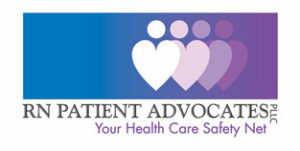
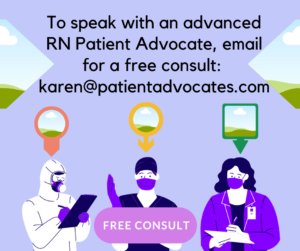
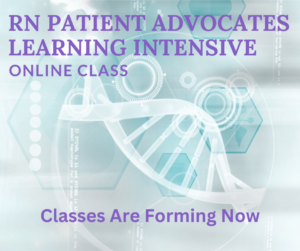

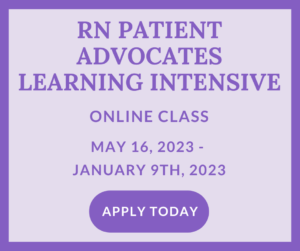
Recent Comments